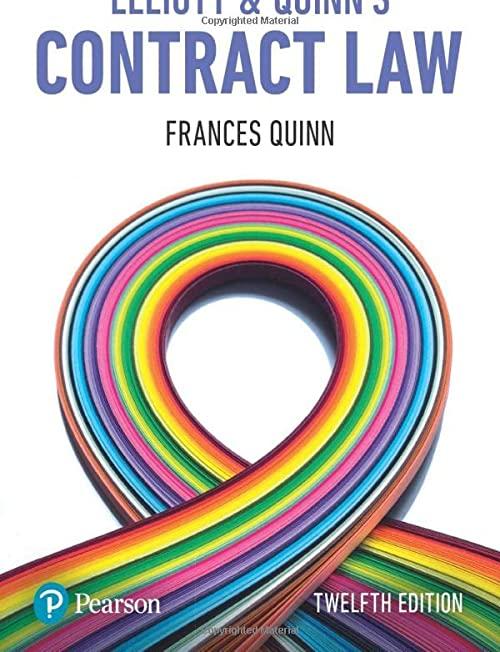Answered step by step
Verified Expert Solution
Question
1 Approved Answer
In the case of Socorro Ramirez vs, Court of Appeals and Ester Garcia, Socorro Ramirez was convicted by the Supreme Court for having violated the
In the case of Socorro Ramirez vs, Court of Appeals and Ester Garcia, Socorro Ramirez was convicted by the Supreme Court for having violated the provisions of R.A.4200. otherwise known as the Anti Wire Tapping Law. If you were the counsel for Socorro Ramirez, what arguments will you set up for her defense? CASE: FACTS: A civil case for damages was filed by petitioner Socorro D. Ramirez in the Regional Trial Court of Quezon City alleging that the private respondent, Ester S. Garcia, in a confrontation in the latter's office, allegedly vexed, insulted and humiliated her in a "hostile and furious mood" and in a manner offensive to petitioner's dignity and personality, "contrary to morals, good customs and public policy." In support of her claim, petitioner produced a verbatim transcript of the event The transcript on which the civil case was based was culled from a tape recording of the confrontation made by petitioner. As a result of petitioner's recording of the event and alleging that the said act of secretly taping the confrontation was illegal, private respondent filed a criminal case before the RTC for violation of Republic Act 4200, entitled "An Act to prohibit and penalize wire tapping and other related violations of private communication, and other purposes." RTC decision: o Granted the Motion to Quash, agreeing with petitioner that: 1. The facts charged do not constitute an offense under R.A. 4200; and 2. The violation punished by R.A. 4200 refers to the taping of a communication by person other than a participant to the communication CA decision: o Rules that the allegations sufficiently constitute an offense punishable under Section 1 of R.A. 4200 Petitioner Ramirez' arguments: o Republic Act 4200 does not apply to the taping of a private conversation by one of the parties to the conversation. o She contends that the provision merely refers to the unauthorized taping of a private conversation by a party other than those involved in the communication. o That the substance or content of the conversation must be alleged in the Information, otherwise the facts charged would not constitute a violation of R.A. 4200. o That R.A. 4200 penalizes the taping of a "private communication," not a "private conversation" and that consequently, her act of secretly taping her conversation with private respondent was not illegal under the said act MAIN Issue: Does RA 4200 apply to the taping of a private conversation by one of the parties to the conversation? Ruling: YES First, legislative intent is determined principally from the language of a statute. Where the language of a statute is clear and unambiguous, the law is applied according to its express terms, and interpretation would be resorted to only where a literal interpretation would be either impossible or absurd or would lead to an injustice Section 1 of R.A. 4200 provides: o It shall be unlawful for any person, not being authorized by all the parties to any private communication or spoken word, to tap any wire or cable, or by using any other device or arrangement, to secretly overhear, intercept, or record such communication or spoken word by using a device commonly known as a Dictaphone or dictagraph or detectaphone or walkie-talkie or tape recorder, or however otherwise described The aforestated provision clearly and unequivocally makes it illegal for any person, not authorized by all the parties to any private communication to secretly record such communication by means of a tape recorder. The law makes no distinction as to whether the party sought to be penalized by the statute ought to be a party other than or different from those involved in the private communication. The statute's intent to penalize all persons unauthorized to make such recording is underscored by the use of the qualifier "any." Consequently, as respondent Court of Appeals correctly concluded, "even a (person) privy to a communication who records his private conversation with another without the knowledge of the latter (will) qualify as a violator" under this provision of R.A. 4200 A perusal of the Senate Congressional Records, moreover, supports the respondent court's conclusion that in enacting R.A. 4200 our lawmakers indeed contemplated to make illegal, unauthorized tape recording of private conversations or communications taken either by the parties themselves or by third persons
Step by Step Solution
There are 3 Steps involved in it
Step: 1

Get Instant Access to Expert-Tailored Solutions
See step-by-step solutions with expert insights and AI powered tools for academic success
Step: 2

Step: 3

Ace Your Homework with AI
Get the answers you need in no time with our AI-driven, step-by-step assistance
Get Started


